Representative Institution: O-hara College of Business.
Partner Institutions: Gakken Holdings Co., Ltd/Nara Women’s University/
Shoei Driving School/Tata Consultancy Services Japan, Ltd.
Summary of activities and the outcomes
(1) Implementation of “Japanese-language education”/ “Training of Indian instructors of Japanese-language”/ “Establishment of Japan Information Center”
The Japan information center was established in comReva University in Bangalore in collaboration with O-hara College of Business to familiarize the students of Reva University with Japan. It was mainly established by EWIS, the Indian main counterpart, the Reva University, and the O-hara College of Business, with the involvement of partner institutions of the consortium. It was crucial to increase students’ interests in Japan, not just informing the importance of Japanese-language education.
Through such mutual interaction between educational institutions in India and Japan, the project has been training Indian students to speak Japanese language, who can lead the new era (society 5.0). From various methods having trials before, the “Phygital” model combined with the education material knows as “Marugoto” was found to be the most effective method for Indian students to learn Japanese language.
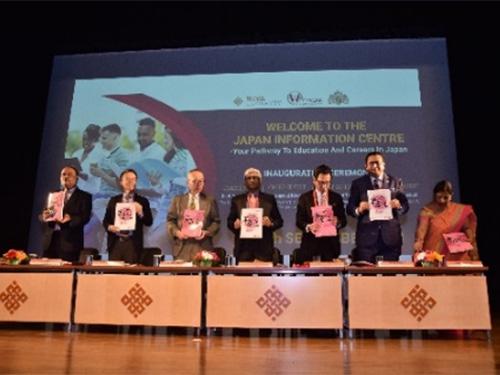 Launching ceremony of the Japan information center Launching ceremony of the Japan information centerin Reva University |
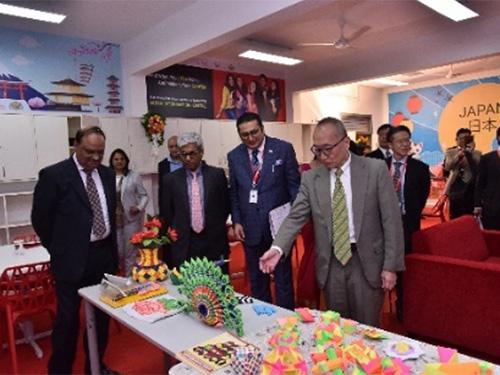 One scene during the event One scene during the event |
(2) Program development on engineering education/compilation of recommendations
Tata Consultancy Services Japan, Ltd. and Nara Women’s University Secondary School experimentally conducted the “STEM education program” at Kendriya-IITBonbay Pawai public secondary school, and Singania private secondary school. Then, they measured its effectiveness on students’ learning, and the possibility of disseminating it nationwide. A teachers’ hub was also created by utilizing “TCS iON” that is, cloud-based service, to further develop the STEM education program. The project has a plan to move on to the stage of operation, and usage of the service.
The project has conducted a questionnaire survey for the teachers of those two schools under the program called “recommendations on exchange of Indian-Japanese teachers and students, curriculum development and innovative education for the future.” As a result, it was found that Indian teachers of the secondary schools strongly felt the needs of education program that develops “non-cognitive ability such as patience, and cooperation”, in other words, initiative, mutual help, and common interest seeking attitude.
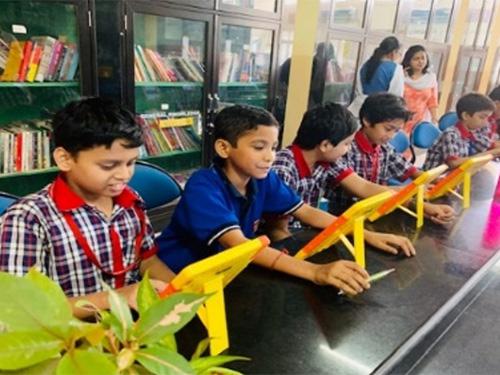 Learning assessment conducted by TCS iON Learning assessment conducted by TCS iON |
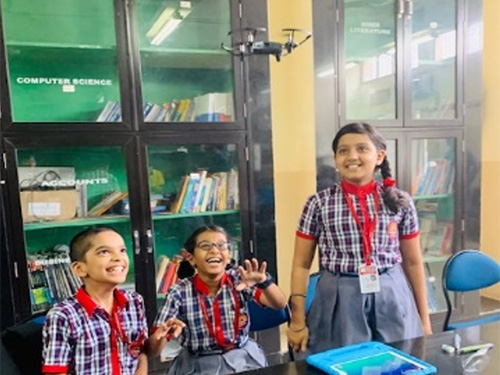 STEM education classes with drones STEM education classes with drones |
(3) Development of human resources through Japanese-style traffic safety education
Shoei Driving School has introduced a safe operation system to SITICs, a comprehensive logistics service company in India. They later verified its effectiveness. The introduction of this system aimed to cultivate the employees’ non-cognitive ability such as patience and cooperation.
Shoei Driving School also conducted a questionnaire survey for drivers to measure their awareness and needs of safe driving in India. It was found that development of non-cognitive ability such as a spirit of give-and-take and sympathy for others can lead to improve drivers’ mind to drive safely and also to create a safe social infrastructure which customers use on a daily basis.
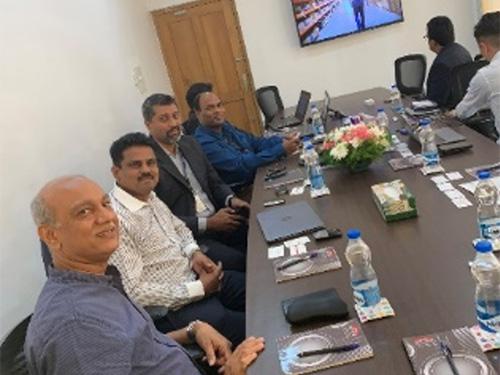 Meeting with management members of SITICs Meeting with management members of SITICs |
(4) Trial introduction and verification of Japanese language and moral education/Establishment of human resource production scheme
The staff of Gakken Holdings Co., Ltd. took Japanese IT company recruitment staff to India to hold a meeting with TCS (Tata Consultancy Services) , and also to carry out a mini Job fair (joint company briefing) and individual interviews at Pune language school for Indian IT human resources who want to work at Japanese companies.
Tata Consultancy Services Co., Ltd has also established “iON Procert” which evaluates and certifies IT specialized skills, as well as “TCS iON Talent Acquisition center”, a matching site for companies and job seekers. They explained how to use them to Japanese companies in India.
Throughout the fair, it became clearer that Japanese companies are seeking to recruit Indian human resources with non-cognitive ability of patience and cooperation and Indian candidates understood that such characteristics are desired by Japanese companies. We found out that the internship program (short-term employment) can be the first step of human resource production scheme as it can deepen mutual understanding with respects to each other’s culture before official long-term employment.
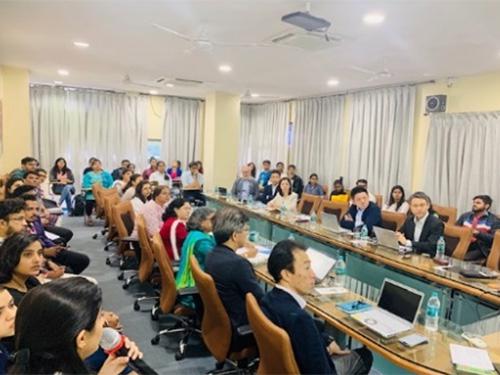 Mini job fair at SIFIL language school Mini job fair at SIFIL language school |
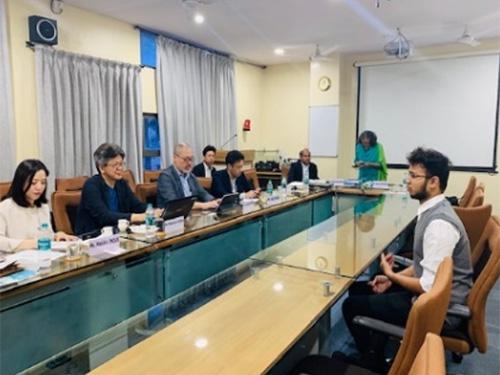 Japanese company interviewing an Indian candidate Japanese company interviewing an Indian candidate |
From the activities conducted mentioned above, we recommend the following;
Recommendations:
- We found out that the consortium-style project was effective for the education to develop human resources for the new era of society 5.0. as it was shown by the successful interaction and complementation of the various institutions involved in the project.
- To sum up, one of the outcomes of the above (1) to (3) activities is to contribute to develop “Non-cognitive ability such as patience and cooperation”, which we defined as Japanese-style education. Through those activities, we believe that we could establish a model case of sustainable introduction of Japanese-style education. Such model case will be useful in the future to utilize educational contents to develop human resources that meet the needs of local and Japanese companies in India as described in outcome (4).
- As shown in this consortium-style project, we found out that the projects, which pursue exploring local needs, building a mutually beneficial relationship, and introducing Japanese-style education, are effective to develop human resources for the next generation society 5.0.







